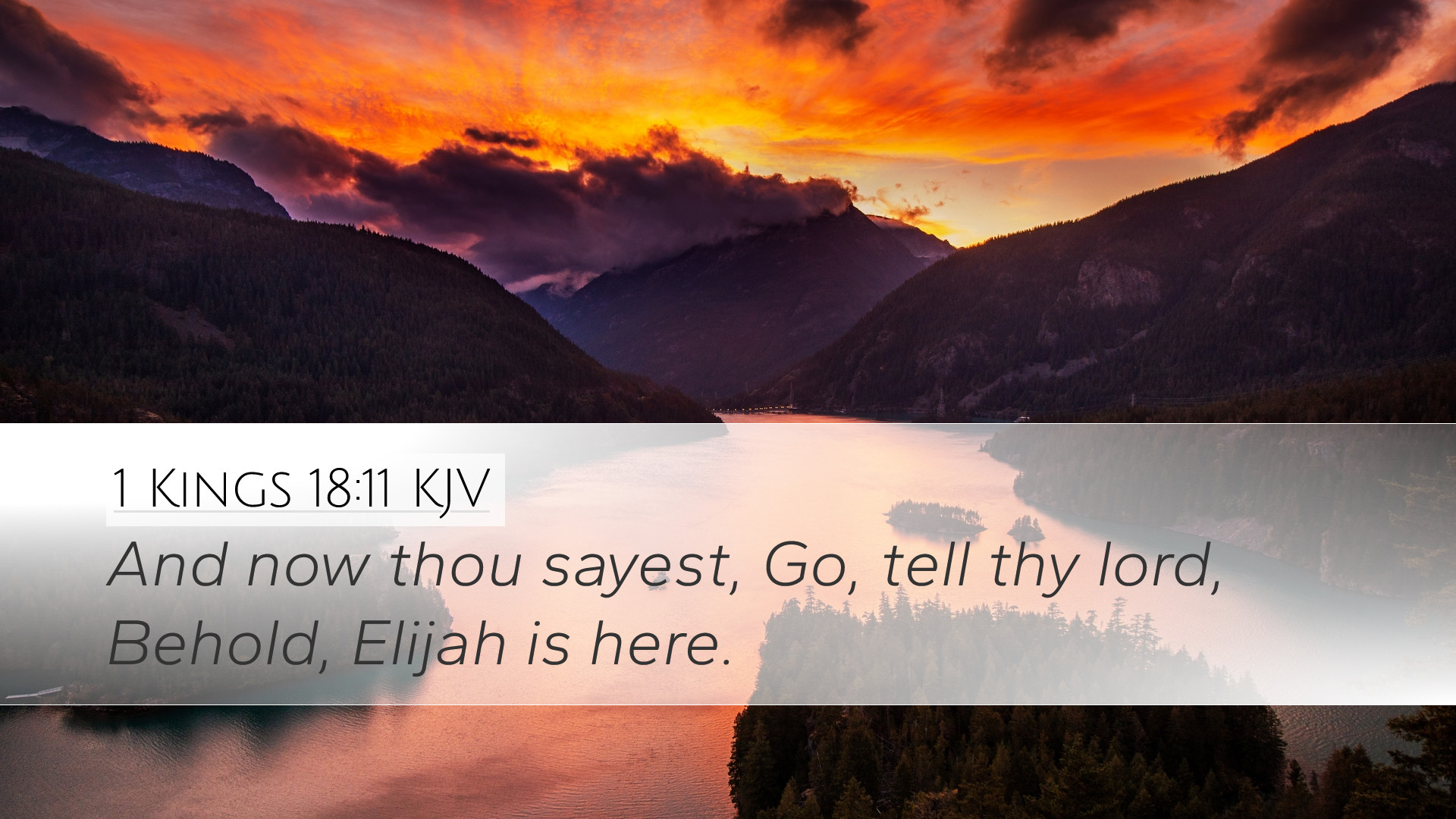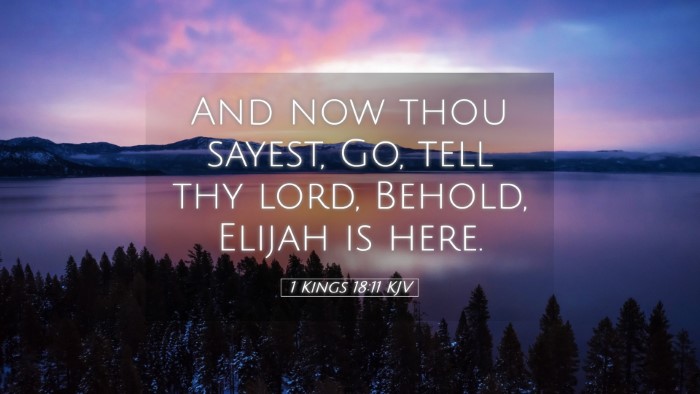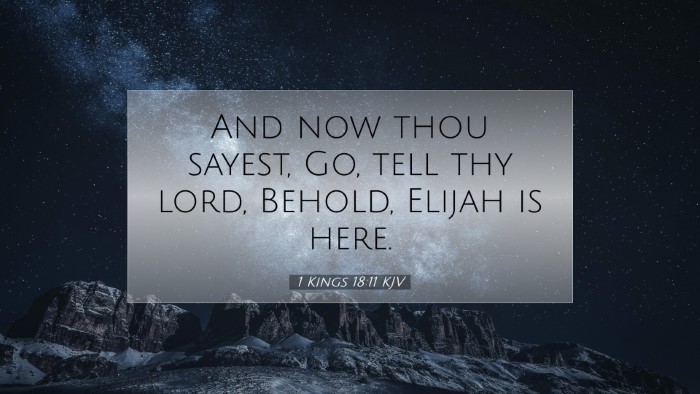Commentary on 1 Kings 18:11
"And now thou sayest, Go, tell thy lord, Behold, Elijah is here." (1 Kings 18:11)
Contextual Overview
The account of 1 Kings 18 takes place during a time of severe drought in Israel, which had been brought upon the land as a consequence of King Ahab’s idolatry and the national turning away from Yahweh. Elijah, as the prophet of God, serves as a pivotal figure in opposing Baal worship and restoring the worship of Yahweh.
Understanding 1 Kings 18:11
This verse captures a moment of tension between Elijah and Obadiah, a servant of King Ahab, who had been secretly aiding the prophets of Yahweh. Obadiah expresses fear and reluctance at the command to inform Ahab of Elijah’s presence, highlighting the peril inherent in confronting the king amidst the prevailing threat against the prophets.
The Nature of Obadiah's Fear
Obadiah’s incredulity at the prospect of revealing Elijah's presence reflects the dangerous political climate of the time. Matthew Henry notes that the king had already commanded the destruction of all the prophets of Yahweh. Thus, Obadiah, who had risked his life to save the prophets, displays an acute awareness of the dangers facing anyone who would oppose the king.
Elijah's Commission
Elijah’s instruction, "Go, tell thy lord," emphasizes the prophetic mission that Elijah is entrusted with. Albert Barnes explains that this directive is a call to action significant for both Elijah and Obadiah. Elijah is to stand before Ahab and confront him about the ongoing idolatry, underscoring the necessity of prophetic courage in the face of apostasy.
Theological Implications
This passage raises critical theological themes:
- The Sovereignty of God: God's control over the nation of Israel, even in times of great sin and rebellion against Him.
- The Challenge of Faithfulness: The call to obey God’s commands despite the external pressures of faithlessness and persecution.
- The Role of Prophets: The essential function of prophets to guide, correct, and challenge the people of God.
Exegetical Insights
The original Hebrew text sheds light on the urgency and seriousness of the command. The term "behold" implies that Elijah's presence is of monumental importance in a nation craving direction and truth. Adam Clarke emphasizes the significance of God's servant being directly involved in key events, indicating the hands-on approach of divine guidance in human affairs.
The Role of Fear and Doubt
Obadiah’s fear resonates with many contemporary believers who face opposition in various forms for standing firm in their faith. It highlights the reality of spiritual warfare where fear can threaten to derail the mission entrusted to believers. Just as Elijah exhorts Obadiah to focus on God’s command, pastors and leaders are reminded to anchor their courage in God’s promises and presence.
Practical Applications
-
Obeying God Amidst Fear: Like Obadiah, believers often grapple with fear in their faith journeys. This passage encourages them to discern God’s voice and obey His commands despite personal risks.
-
Standing Firm Against Idolatry: Elijah’s mission serves as a reminder that the church is called to challenge contemporary forms of idolatry and ethical compromise in society.
-
Supporting God’s Servants: Obadiah's actions in protecting the prophets invite believers to consider their own roles in supporting those who are on the frontlines of spiritual conflict.
Conclusion
1 Kings 18:11 encapsulates a moment of divine direction and human apprehension. It invites reflection on the complexities of faithfulness in a challenging environment. As we consider this text, may we, like Elijah, boldly step into our roles as God’s messengers, confident in His sovereignty and purpose for our lives and communities.


